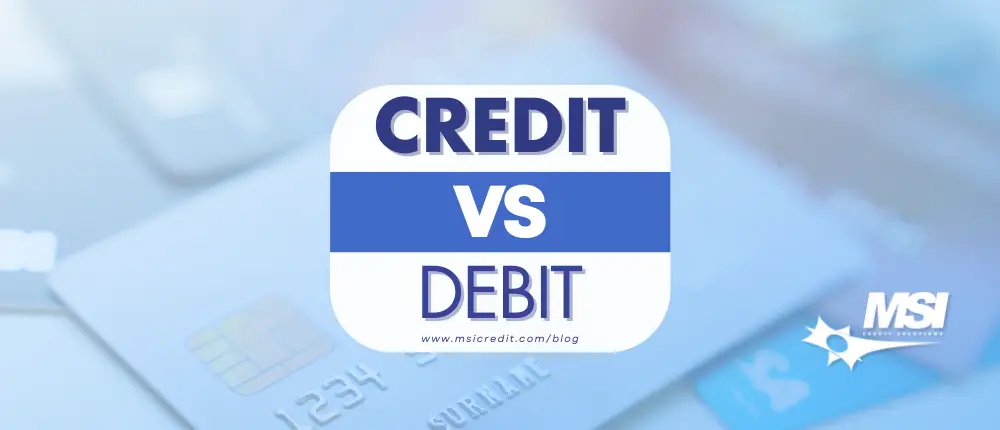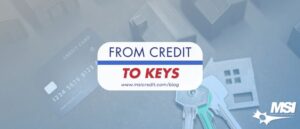When it comes to managing your finances, two of the most commonly used payment methods are credit and debit cards. While they may look similar and even serve the same purpose — allowing you to make purchases — they function in very different ways. Whether you’re new to using cards or simply want to clarify the distinctions, this blog will break down the key differences between credit and debit cards, helping you make more informed financial decisions.
What is a Credit Card?
A credit card is essentially a line of credit provided by a financial institution, such as a bank or credit card company. When you use a credit card, you’re borrowing money up to a predetermined limit (your credit limit) to make purchases. At the end of each billing cycle, you receive a statement outlining your purchases and how much you owe. You have the option to pay off the balance in full or make a partial payment, in which case interest charges will apply to the remaining balance.
Key Features of Credit Cards:
- Borrowing Money: Credit cards allow you to borrow money up to your credit limit, which you then pay back over time.
- Credit Limit: Each credit card has a set limit based on your creditworthiness. If you exceed this limit, you may be charged fees or have your purchases declined.
- Credit Score Impact: Your payment history and credit card usage play a significant role in determining your credit score. Timely payments can help improve your score, while missed or late payments can lower it.
- Interest and Fees: If you carry a balance from one month to the next, you’ll accrue interest charges, which can be quite high. Some cards also come with annual fees or other charges.
- Rewards and Benefits: Many credit cards offer rewards programs, such as cashback, travel points, or discounts, for every dollar spent.
What is a Debit Card?
A debit card, on the other hand, is linked directly to your checking or savings account. When you make a purchase with a debit card, the money is withdrawn immediately from your account. In other words, you’re spending your own money, not borrowing from a financial institution. Debit cards are commonly used for everyday purchases, and many people prefer them for managing day-to-day expenses.
Key Features of Debit Cards:
- Spending Your Own Money: Debit cards are tied directly to the funds in your bank account, meaning you can only spend what you have available.
- No Credit Limit: Since you’re not borrowing money, there’s no set credit limit like with a credit card. However, you may have an overdraft limit (if your account is set up for overdraft protection) that lets you spend more than what’s in your account, but this can come with fees.
- No Interest Charges: Since you’re not borrowing money, debit card transactions don’t come with interest fees. However, if you have overdraft protection, you could face overdraft fees if you spend more than you have.
- Instant Transactions: When you use a debit card, the transaction is processed immediately, and the money is deducted from your account. This makes it easier to track your spending in real time.
- Limited Rewards: Debit cards typically don’t offer the same rewards or benefits as credit cards, though some may offer basic cashback or loyalty programs.
Key Differences Between Credit and Debit Cards
| Feature | Debit Card | Credit Card |
| Source of Funds | Directly from your bank account | Borrowed money from the card issuer |
| Spending Limit | Limited to the balance in your bank account | Based on your credit limit |
| Impact on Credit Score | No impact on credit score | Affects your credit score and history |
| Interest | No interest charges | Interest charged if balance isn’t paid off |
| Fraud Protection | Limited fraud protection | More extensive fraud protection |
| Rewards | Typically none | Often offers rewards and cashback |
Which Card Should You Choose?
The choice between a credit card and a debit card depends on your financial goals, spending habits, and how you want to manage your money.
Use a Credit Card If:
- You want to build or improve your credit score.
- You can pay off your balance in full each month to avoid interest charges.
- You want to earn rewards or take advantage of cardholder benefits.
- You need purchase protection or travel-related perks.
Use a Debit Card If:
- You prefer spending only the money you have in your bank account.
- You want to avoid accumulating debt or paying interest.
- You need a simple way to access funds without worrying about a credit limit or fees (aside from potential overdrafts).
- You’re managing a strict budget and prefer tracking spending in real time.
Conclusion
Both credit and debit cards offer unique benefits and serve different purposes. Credit cards are great for building credit, earning rewards, and enjoying extra protection, while debit cards are excellent for staying within your means and avoiding debt. Ultimately, it’s up to you to decide which option works best for your lifestyle and financial goals.
At MSI Credit Solutions, we believe in empowering our clients with the knowledge they need to make the best financial decisions. Whether you’re looking to build your credit or simply manage your money better, we’re here to guide you on your financial journey.
For more personalized advice or assistance with credit management, reach out to us today! Let’s work together to help you achieve your financial goals.

Give us a call today for a free credit analysis and consultation!
(866) 217-9841

MSI Credit Solutions provides superior credit restoration and comprehensive consulting services that are reliable and affordable.
*The information in this article has been provided strictly for educational purposes.





